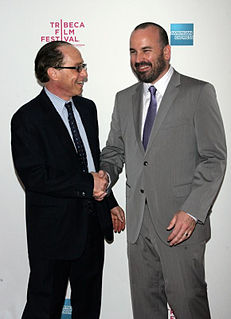A Quote by Sherman Austin
They went back there, looked at all the computers, asked me to come in and tell them what all the computers were for specifically so they knew how to dismantle the network I had been running.
Related Quotes
At the age of 5, when I was in kindergarten, I often used to pass by the computer labs and see students doing work on computers. I realized that calculation, which would take us a long time to do, can be done in less than a second with the help of computers. So that is how my interest in computers began.
There is a popular cliché ... which says that you cannot get out of computers any more than you have put in..., that computers can only do exactly what you tell them to, and that therefore computers are never creative. This cliché is true only in a crashingly trivial sense, the same sense in which Shakespeare never wrote anything except what his first schoolteacher taught him to write-words.
In our age of individualism, we see computers as ways through which we can express our individuality. But the truth is that the computers are really good at spotting the very opposite. The computers can see how similar we are, and they then have the ability to agglomerate us together into groups that have the same behaviours.
I've been asked to explain why I don't worry much about the topics of privacy threat...One reason is that these scenarios seem to assume that there will be large, monolithic bureaucracies...that are capable of harnessing computers for one-way surveillance of an unsuspecting populace. I've come to feel that computation just doesn't work that way. Being afraid of monolithic organizations especially when they have computers, is like being afraid of really big gorillas especially when they are on fire.





































